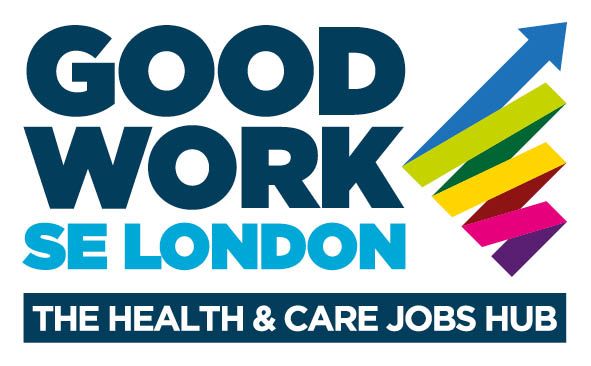Applying for jobs in health and social care
If you’ve decided to apply for a job in health or social care in south east London, that’s great! Here is some guidance to support you with this.
What's covered?
The application process
Find out what's involved when you apply for a health or social care job.
Writing a good application
Get some top tips for what employers are looking for from your application.
Interviewing for jobs in health and social care
Advice and top tips for preparing for and having an interview for a health or social care role.
Preparing for interviews
Online or in person interviews
You’ll also need some practical preparation, depending on whether your interview is in-person or online:
In person interviews
If you’re interviewing in person, make sure you’ve made yourself available for the interview period, as well as travel to and from the location.
Plan your route with timings, to arrive at the location at least ten minutes before the interview.
Decide what you’re going to wear ahead of the day, and iron any clothes if necessary. Wearing the right outfit can help you feel comfortable and confident. Many organisations will have a smart casual dress code – if that’s the case, you won’t need to dress in a full suit! However, it’s best to check this first.


Online interviews
If your interview is online, make sure you’ve arranged to be somewhere quiet with a laptop or computer and good internet access during the interview period. It’s best to set up at least 10–15 minutes before the interview is due to start, to ensure you’re settled and ready.
Of course, in some situations it won’t always be possible to ensure this. You might be at home trying to look after kids or have a dog who barks whenever there’s a knock at the door! If that’s the case, just explain to the interviewers at the start that this may happen – they should understand, as they’re human too!
Answering questions
Why are you interested in this role / organisation?
This is your chance to talk specifically about why you’re interested in applying. Try to make brief points to back up your claims – for instance, if you’re applying for a physiotherapy role, if you say ‘I’m passionate about physical activity’ you might add a point such as ‘which is why I opted to do GCSE and A-level PE’ or ‘having been an active gym-goer for 10 years.’
What skills and experience can you bring to the role?
Ultimately all employers want to know the answer to this. Some may ask it in this form, while others may ask a few different questions to find out about specific skills or experience.
Try to cover a few skills that are core to the role, and use evidence from relevant experience. It can be a challenge to balance covering enough information while keeping your answer brief. You may find it best to cover around three to five key skills.
Tell us about a time when…
These types of questions will ask you for an example where you demonstrated a specific requirement from the job advert (for instance: tell us about a time when you worked with others to achieve a defined goal).
One way to structure your answer is to use the 'STAR method', where you break down examples of experiences you've had into four sections:
S: Situation – the situation you were in/dealing with
T: Task – what you needed to get done
A: Action – the action you took to get the task done
R: Result – what happened as a result of your actions and the skills you learnt or demonstrated. Be as specific as you can.
How would you manage a situation where…
These types of questions will ask you about hypothetical challenging situations, that are likely to arise in the job. For instance:
→ How would you manage a situation where a patient submits a complaint about you?
→ How would you manage a situation where a patient becomes frustrated and aggressive?
→ How would you manage a situation where a patient needs help, but you and other colleagues are busy?
→ How would you manage a situation where a more senior colleague asks you to cover up their mistake?
It’s worth thinking about different scenarios like these and how you would respond. They are usually designed to demonstrate your ability to demonstrate professionalism, think clearly and follow procedures.
Where do you see yourself in ten years?
The interviewer will be trying to get a sense of whether you see a long-term future in the role and/or would be interested in growing in their organisation.
Do you have any questions for us?
It’s a good idea to ask at least one question to demonstrate your interest in the job. You can ask about things that matter to you, like what your typical day might be like or how the team works together. It's also okay to ask about things you're curious about, like training opportunities or how the organisation supports its staff.
Write your awesome label here.
Some frontline job interviews will also include technical or knowledge-based questions too. You should be informed in advance if this is the case.
For more specific advice, the following sites may help:
For more specific advice, the following sites may help:
Useful resources
Check out the following for more advice on applying and interviewing for health and social care roles.
TRAC.jobs
The application portal for many NHS jobs.
Getting into social care
Advice for writing a job application for a social care role.
Preparing for an interview
Advice from BBC Bitesize.
The NHS job interview: Questions and answers
Guide to questions you might face in an NHS job interview for a patient-facing role.

